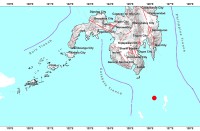QUEZON CITY, Nov. 17 — Things are looking up for members of the Matigsalog and Obu Manuvu tribes in Marilog, Davao City as the Department of Agriculture and other government agencies recently sealed a partnership with their leaders to bring sustainable livelihood and income opportunities to their communities, notably in agro-forestry and livestock growing.
Agriculture Secretary Proceso Alcala, together with the officials of the National Commission on Indigenous Peoples (NCIP) and Department of the Environment and Natural Resources-Davao Region, recently signed a memorandum of agreement with the leaders of the six recognized tribal clans for the joint development of the Marilog Stock Farm and Research Development Center in the city’s Marilog district, the DA said in a report.
The stock farm sits on a 514-hectare property, which was donated to the government by the elders of Matigsalog and Obu Manuvu tribes. Through Presidential Proclamation No. 589 by then-President Ramos, the land was declared a civil reservation for stockfarm and research center site of DA Regional Field Unit 11.
Under the agreement, the indigenous peoples (IPs) will be trained and supported as farmer-cooperators, ensuring they get quality production inputs such as animal stocks for fattening, sufficient technical help and other forms of assistance from the DA.
Currently, the stock farm has 37 heads of cattle, 10 heads of horses and 20 heads of organic farming pigs.
For its part, NCIP will assist the Matigsalog and Obu Manuvu tribes to determine at validation stage whether or not a livelihood project synchs with their own development plans, in keeping with the Indigenous Peoples Right Act.
DENR-11, which has completed the re-survey of the area, will come up with maps, geotag photos and other pertinent documents to serve as guides in crafting the development masterplan development of the area. DENR-CENRO will also deliver technical assistance on forest management.
Alcala assured IP members that the government will carry out the agreement with the assurance that every family and every clan will benefit from the projects and activities that DA will undertake in the stock farm.
As part of DA’s initial interventions, Alcala committed to facilitate the training at the Technical Education and Skills Development Authority or TESDA of the 12 members of tribes so they acquire capacities needed to successfully run agribusiness enterprises.
Alcala also granted six scholarship slots via the ACEF Scholarship Program for qualified graduating high school students who will be taking agriculture-related courses in college. ACEF gives full subsidy on tuition fees, books and other allowances for four years, including monthly stipends.
For IP members working in the stock farm on job order basis, Alcala asked Recoter to study the possibility of providing them with social security benefits as additional incentives.
From their end, the IPs expressed their appreciation and commitment to make the partnership work.
“Sana gawin din natin ang ating obligasyon. Sa pamamagitan ng paglagda natin sa MOA isipin natin na matutulungan tayo nang pamahalaan. Lahat ng napagkasunduan natin ay para sa ating lahat at sa ikabubuti ng ating kabuhayan,” said Datu Lipatuan Joel Unad of Obu Manuvu, who spoke on behalf of the two tribes.
Aside from Alcala, other DA officials in attendance included DA RFO 11 Assistant regional director for research and regulatory Dr. Rafael Mercado, stock farm Officer-in-charge Benjamin Pagong, and Directors Amalia Datukan of RFO 12 (SOCCSKSARGEN) and Edna Mabeza of RFO 13 (Caraga). (DA, with additional report from DA 11)






